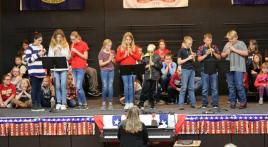Gen. Joseph Warren "Vinegar Joe" Stilwell was a U.S. Army general who served in the China Burma India theater during World War II. My uncle Jack Eckert, a veteran of WWI and WWII and a staff member of his in WWII. said Vinegar Joe was a tough infantryman - not a politician but had a big heart. Jack would lead a recovery party in enemy territory searching for him when contact was lost with his location with approaching Japanese forces. Jack’s journals relate, “My personal relations with Gen. Stilwell were always up or down, mostly down. I don’t think he ever quite forgave me guessing right about that J-- wide envelopment to Leshio, (Jack had reviewed British maps.) I tangled with him over artillery policies, he refused at first to let me teach Ft. Sill fire-direction techniques to the Chinese. In the spring of 1943, when I was G-4 at Ramgarh, he wanted to mount his counter-offensive against the J---; the Chinese troops were still only half trained and equipped, the new (Burma) road was not yet built and transportation over the existing road would not supply a corps operation. I was the only member of his staff who advised against it. Fortunately for us the British vetoed the idea. Although his feeling for me could not be all bad, as he sent me back to Washington in 1944 to represent him at the big all-theater G-4 Conference. After I got to Bragg, Gen. Stilwell recommended me for the Legion of Merit for my service in the CBI. I shall always remember Vinegar Joe, kindly, for the sympathetic telegram he sent me upon the news of Johnny’s (Jack’s son) death in combat. Stilwell at heart was an infantry combat solider with many narrow point of views of supporting arms. He was lean and drawn with close-cropped hair and wore a sour expression, he was impatient, sarcastic and critical of anyone who disagreed with him. His nickname was “Vinegar Joe.” His subordinates respected him but hardly admired or beloved him. One of his opinions was, and I think he was right, that Chinese soliders when properly trained and equipped and led, would prove to be equal to any solider in the world. Their divisions were about 1/3 smaller then ours, with 10,000 men but lacking in transportation and artillery. About this time I was sent by Stilwell to Loiving, China, to investigate and adjudicate a dispute between Chennault’s "Flying Tigers” and the British Air Force. Before leaving I asked the boss if I were empowered to issue orders in his name. He hesitated, then said, ”Yes, if it comes to that, but don’t throw your weight around." When I arrived an air battle was ongoing between our P-40 and British Hurricanes with J-- zeros. The J--- lost seven planes to superior firepower. After a day or so I got the jist of the problem and started relations with the British and American airmen commanded by Chennault. Some years before Captain Chennault, a retired Air Force pilot, had undertaken to reorganize the Nationalist Chinese Air arm. He recruited volunteers from experienced pilots from the Army, Navy and Marine Corps. They soon had the reputation as his “Flying Tigers” who performed well. Eventually Chennault, accompanied by Gen. Mao, chief of the Chinese air force, arrived. I had a long conference with them. While there a J-- air attack occurred; of the nine zeros that came six were shot down, but they had destroyed some planes on the ground. I came to find out many of the RAF British planes were manned by Americans and Canadians. I persuaded Chennault that although several Hurricanes were out of commission he could still use their ground crews. He agreed and established a liaison officer to his staff. Eventually his Tigers were absorbed into the U.S. Air Force with Chennault promoted to major general. Jack returned to the United States detailed to organize and command the 153rd FA Group at Fort Bragg, N.C. He served in France and Germany; after Hiroshima, he returned to the United States. Later Jack was detailed by Washington to Korea to investigate the troop withdrawal to Pusan Peninsula. In 1953 he briefed European Combat commanders on “Lessons Learned’.’ He retired to Florida.


